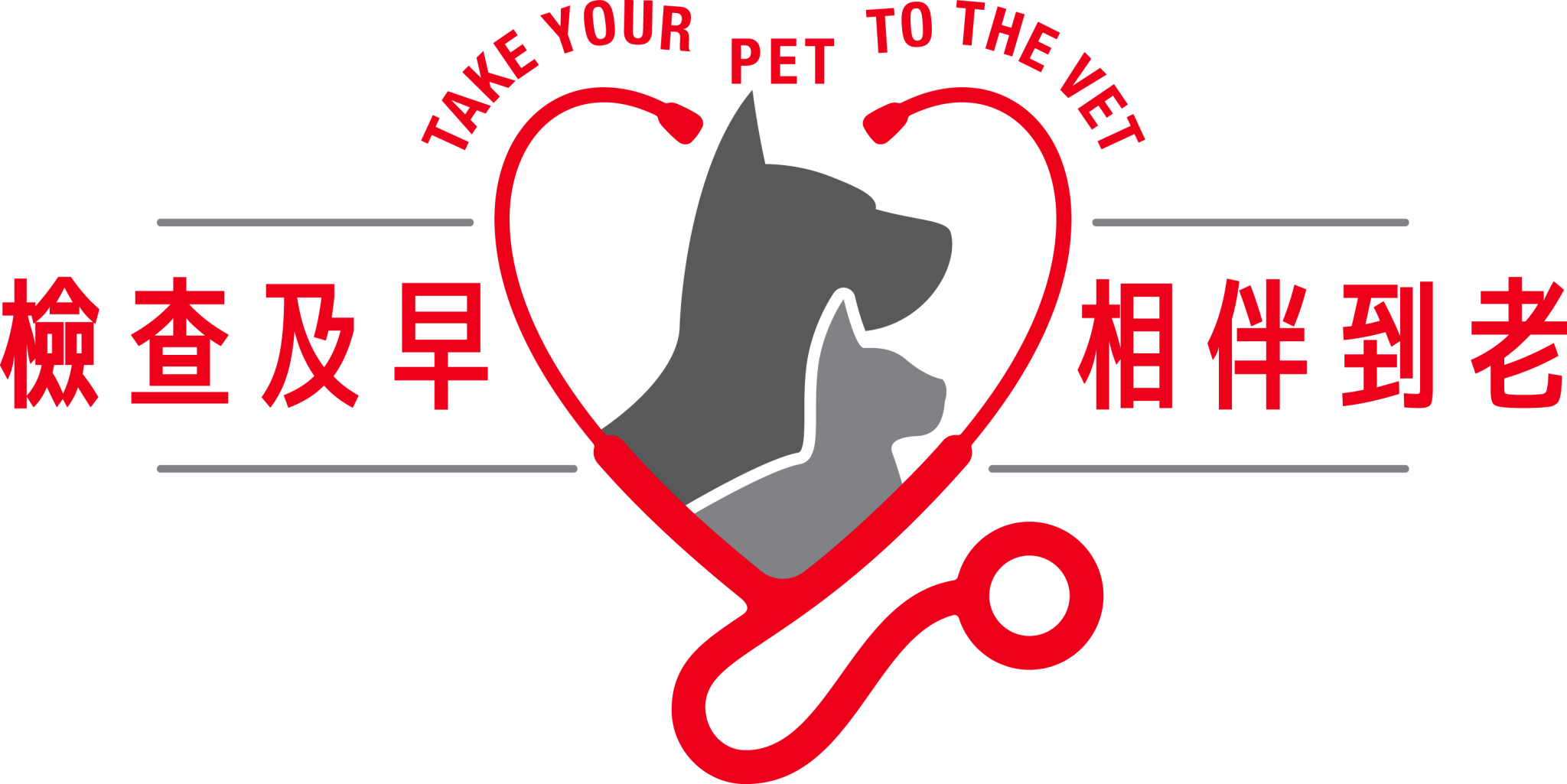-
Beta Carotene
Stimulate cell-mediated & humoral immune responses -
Vitamins E & C, Lutein & Taurine
A synergistic antioxidant complex that helps neutralise free radicals and support natural defenses and vaccine response. -
Beta Glucans
Known to enhance both innate & adaptive immune response (yeast extract).
Caring for Nursing and Weaning Kittens and Puppies
SO THE PUPPIES & KITTENS WILL BE HEALTHIER


Gestation lasts 63 days in canines.
Puppies will gain 70% of their final birth weight during the last 20 days of gestation.

NO need to feed more!
Keep feeding the adult maintenance diet OR a diet specifically tailored for this period


Energy needs increase by +10%/week!
Food intake becomes limited as the growing uterus compresses the stomach: Switch to a growth diet
DO NOT feed a growth diet right from the beginning of gestation: this means extra-energy and fat accumulation; this can lead to difficulties giving birth!
DO NOT feed a maintenance adult diet throughout gestation: there is an energy deficit, so the female might be very thin at the time of parturition, which also leads to difficulties to give birth and will impair milk production!


65 days in felines

need to make some reserves during gestation to properly maintain their lactation later on.
her energy needs increase by +10%/week right from the beginning of gestation.

a pregnant female cat should be fed with a growth diet, or a diet meant for gestation since the beginning of gestation.
also relies on how the queen was fed during gestation. It is important to provide the right nutrition during this period to optimize milk production.
It is important to note that this is different from what we do in canines!
LACTATION is the most energy-demanding lifestage. In dogs and cats, energy needs are increased 2–3 times compared to a normal adult!
During this period, the females should be fed with a growth diet.



To properly fuel milk production, it is therefore recommended to FREE-FEED the female.
YES! Free-feed. This is the only time we will ever recommend that!
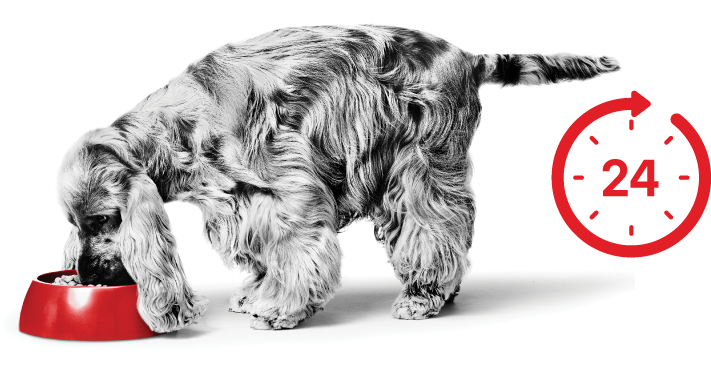
EPA-DHA MATTER
OMEGA-3 FATTY ACIDS
Supplementing the diet with omega-3 fatty acids EPA-DHA during gestation, lactation and growth supports brain and cognitive development in puppies and kittens.



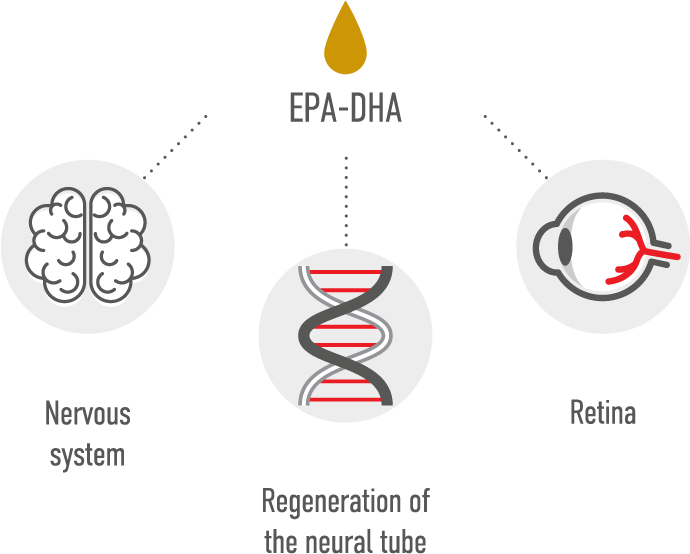
Puppies whose mothers were supplemented during gestation and lactation demonstrated improved retinal function, cognitive ability as well as trainability.

It is always recommended to have a milk replacer on hand.
The benefits of supplementing those puppies with maltodextrin - a carbohydrate used for premature human babies - has been demonstrated.

It is important to ensure the newborn suckles the colostrum, the first milk of the mother, right after birth;
Supplementing the newborn puppies with immunoglobulin Y (IgY) during its first days also supports growth and weight gain.


Healthy puppies and kittens
MUST gain weight on a daily basis.
Their weight should therefore be checked daily, using a scale; anytime a plateau or a weight loss is observed, it means there is a potential problem!

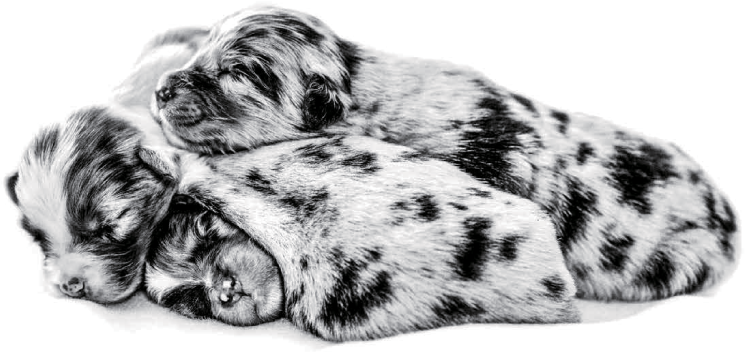
MEALS/DAY
The capacity of the newborns' stomach is limited.
They need to drink milk often!
When bottle-feeding is required, it is recommended:
- First week after birth: 8 meals/day
- Second week: 6 meals/day
- Third week: 4 meals/day
DON'T'S
The most common mistake people do with a milk replacer?
They do not properly dilute the milk powder! This can lead to constipation or diarrhea.


Cow's and goat's milk are
NOT good alternatives for
newborn puppies and kittens.
Those milks contain more lactose and are less energy dense and therefore do not help sustain their growth and can lead to gastro-intestinal problems!

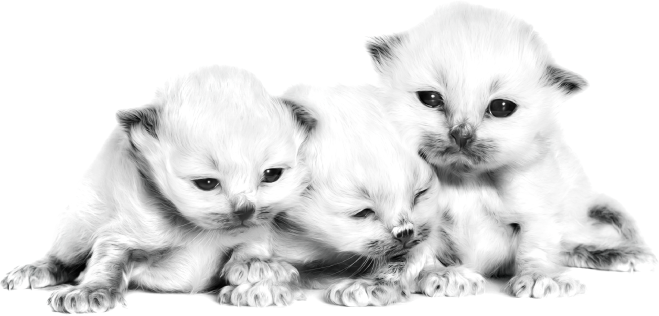
IMPORTANT
Stimulate defecation and miction after each bottle-feeding session.
Take a gauze moistened with lukewarm water and massage the perineal region of the newborn, that should be enough to induce the reflex.
NUTRITIONAL WEANING MATTER
NUTRITIONAL WEANING
Transition from milk to solid food should take place at 4–4.5 weeks of age.
FOOD TRANSITION
Can be done over a four-week period.
The move from liquid to solid food must be smooth and progressive.
A way to do so is also to humidify the diet — which is made easier with rehydratable kibbles.
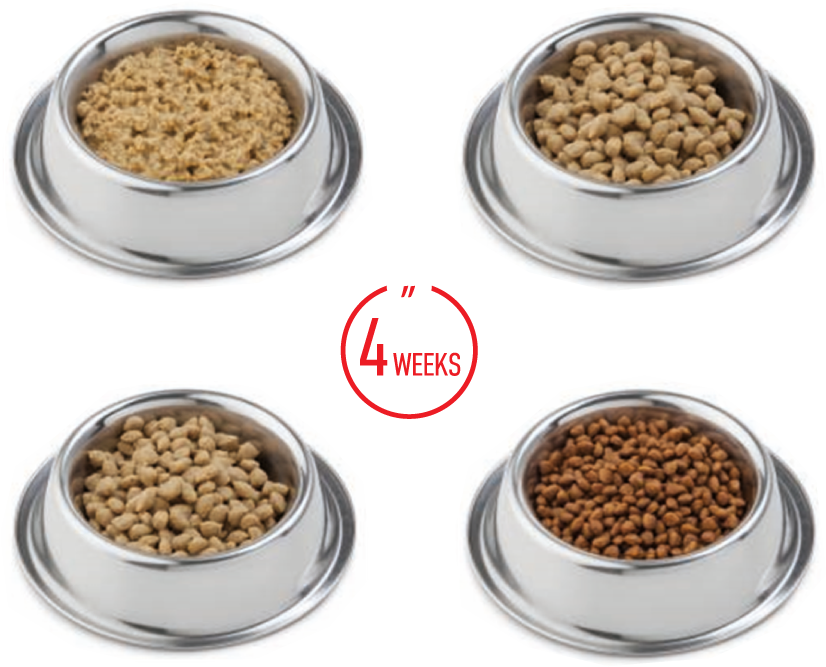



NUMBER OF MEALS
Increasing the number of meals during this period can help. In puppies, a study showed that there is an improvement in stool quality at the time of weaning if fed 4 meals a day.
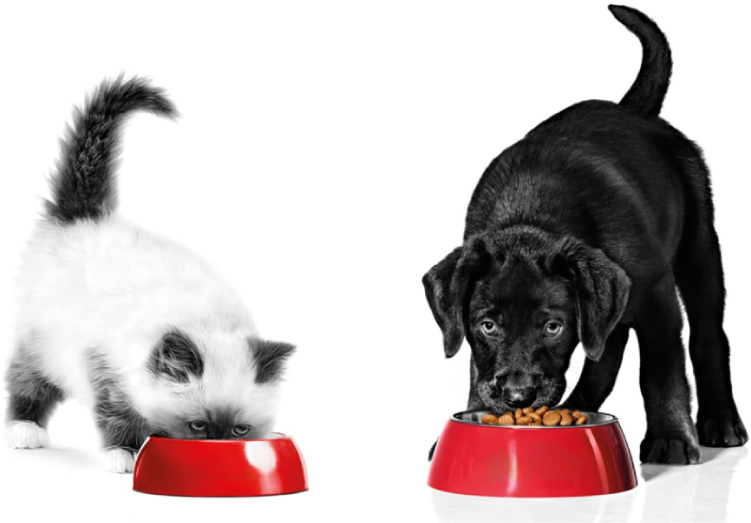
DIGESTIVE SAFETY
is of the utmost importance at the time of weaning in puppies and kittens.



AN ADAPTED GROWTH DIET


are not fed a growth diet.
This nutritional mistake impairs
their growth and can lead to
joint disorders.
GROWTH DIET
Puppies & kitten must be fed with growth diets that will provide them with the energy, the proteins and the minerals they require to build themselves into adults.

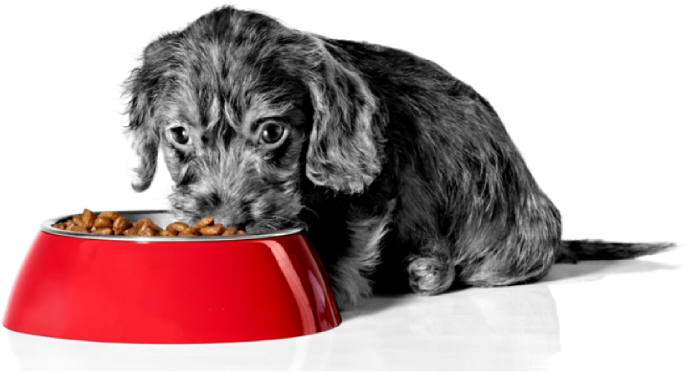
FOOD TRANSITION
In puppies, transition from growth to adult diet should happen at:
- 10 MONTHS in dogs <10kg adult body weight
- 12 MONTHS in dogs between 10-25kg adult body weight
- 15 MONTHS in dogs between 25-45kg adult body weight
- 18-24 MONTHS in dogs >40kg adult body weight
DO NOT SUPPLEMENT while the puppy is fed a balance diet,they will absorb extra-calcium, contributing to development of osteo-articular disorders.
In puppies, especially in large and giant breeds, people often believe calcium supplementation is required, while actually, it is a mistake that potentially bears serious consequences.
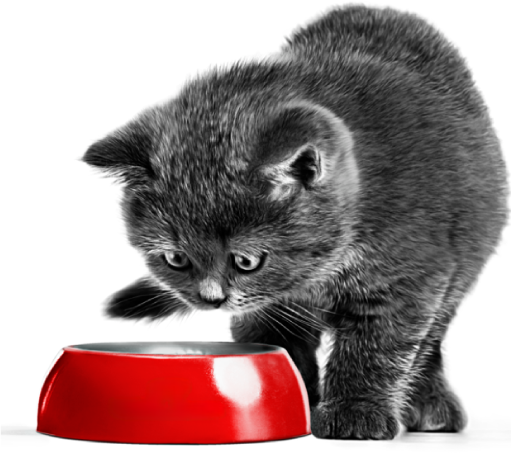
FOOD TRANSITION
We'd recommend to do the transition from growth to adult diet at 12 months of age.
In Maine Coons though, with a longer growth period, we'd recommend to perform this transition at 15 months of age instead.
COMPLETE
Growth diets are complete and balanced: there is no need for supplements.



SHOULD CONSIST OF THE FOLLOWING NUTRITIONAL VALUES
-
DHA
Contributes to cognitive and retinal development, as well as trainability. -
Highly Digestible Proteins and adapted energy levels
Provide the foundation for healthy brain development.
-
Prebiotics
To help promote a healthy balance of intestinal microbiota
To inhibit the growth of harmful intestinal microorganisms and promote growth of beneficial ones.
Essential to the intestinal cells metabolism. -
Highly Digestible Proteins (LIP):
Highly digestible proteins for growth & renewal of body tissues (skin, hair, healing)
Foster development of muscles & support immunity - Beet Pulp Contributes To Healthy & Easy Digestion



